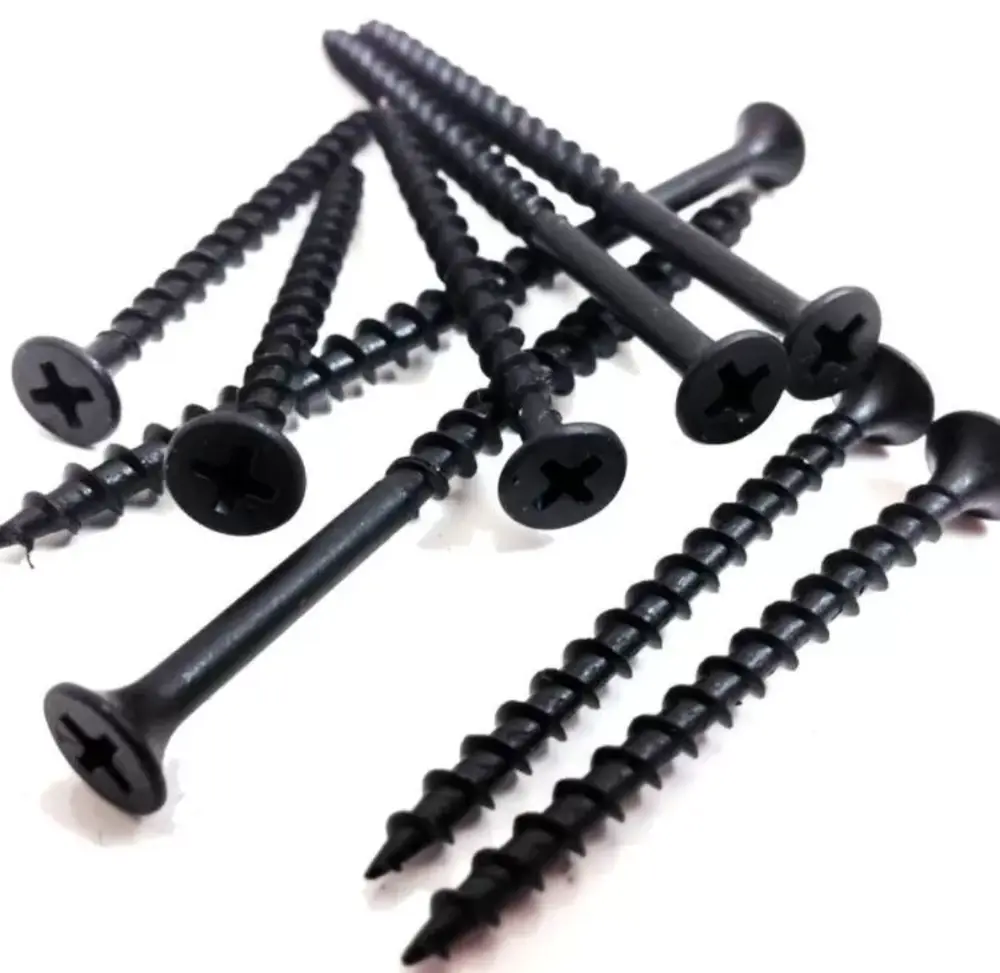Drywall screws are fundamental components in modern construction, playing a critical role in the installation of drywall sheets on walls and ceilings. Their design, material, and functionality make them indispensable for achieving clean finishes and secure fixtures in residential, commercial, and industrial projects. This guide explores everything construction professionals need to know about drywall screws—types, materials, uses, and practical tips tokohasil for optimal application.
Understanding Drywall Screws
Drywall screws are specially designed fasteners used to attach drywall panels to wood or metal studs. Unlike general-purpose screws, drywall screws feature a bugle-shaped head, sharp threading, and hardened steel composition, ensuring secure installation without damaging the drywall surface.
The bugle head allows the screw to sink slightly below the drywall surface without tearing the paper face, making it easy to cover with joint compound for a smooth finish. Their specific design reduces the risk of nail pops and ensures long-term stability of walls and ceilings.
Types of Drywall Screws and Their Applications
Selecting the right drywall screw is crucial to ensure structural integrity and avoid costly rework. Common types:
1. Coarse Thread Drywall Screws
Best for: Wood studs
Features: Widely spaced threads that grip wood fibers securely
Use Case: Ideal for standard residential drywall installation where drywall is fastened to softwood framing. The coarse thread bites into the wood, preventing slippage or loosening over time.
2. Fine Thread Drywall Screws
Best for: Metal studs
Features: Closely spaced threads designed to cut into metal
Use Case: Preferred in commercial projects where metal framing is common. The fine threads reduce the risk of stripping thin metal studs, offering a firm and lasting hold.
3. Self-Drilling Drywall Screws (Tek Screws)
Best for: Heavier gauge metal studs
Features: Drill-like tips for faster penetration into metal
Use Case: Speeds up installation when working with tough metal frames, eliminating the need for pre-drilling.
Materials and Coatings: Built for Performance
Drywall screws are typically made from hardened steel to ensure strength and durability. However, their performance and suitability are also influenced by coatings that enhance corrosion resistance:
Black Phosphate Coated Screws: Common for interior drywall applications, offering limited corrosion resistance.
Zinc Coated Screws: Better corrosion protection, suitable for areas with moderate moisture.
Stainless Steel Screws: Premium option for high-moisture environments like bathrooms, basements, or exterior walls with moisture barriers.
Choosing the right material and coating helps prolong the life of the installation and prevents unsightly rust stains.
Size and Length: Getting the Right Fit
Drywall screws come in various sizes and lengths to match the drywall thickness and the underlying structure:
Standard Lengths: Typically range from 1 inch to 3 inches
Common Sizes: #6 and #8 gauge screws are most frequently used
Selection Tip: Use screws that penetrate the stud by at least 5/8 inch for a secure hold. For example, a 1-1/4 inch screw is ideal for 1/2 inch drywall on wood studs.
Correct sizing prevents over-driving, which can weaken the connection or damage the drywall.
Practical Installation Tips for Professionals
Proper installation of drywall screws is essential for structural strength and a clean finish:
Use a Drywall Screw Gun: Ensures consistent depth and prevents over-driving or breaking the drywall paper face.
Space Screws Correctly: Typically 12 to 16 inches apart on studs, closer spacing may be needed for ceilings to prevent sagging.
Avoid Over-Tightening: It weakens the board and leads to potential screw pops. Stop driving once the screw head is slightly recessed.
Consider Moisture Conditions: Always select coated or stainless steel screws for damp areas.
Advantages of Using Drywall Screws
Superior Holding Power: Compared to nails, drywall screws offer better grip and reduce movement.
Clean Finish: The bugle head design prevents damage and simplifies taping and finishing.
Efficiency: Screws install quickly with power tools, enhancing productivity on the job site.
Versatility: Available in various types, sizes, and coatings to meet diverse project requirements.
Conclusion
Baut: Drywall screws are more than just fasteners—they are critical to the structural integrity and aesthetics of drywall installations. Choosing the right type, size, and material ensures long-lasting, professional results on every project. For construction professionals, understanding the differences between coarse and fine thread screws, the importance of coatings, and proper installation techniques is vital for maximizing efficiency and performance.
Investing in quality drywall screws tailored to specific project needs will ultimately save time, reduce maintenance issues, and deliver a superior finish. As always, select products from reputable manufacturers to ensure compliance with building standards and project durability.

